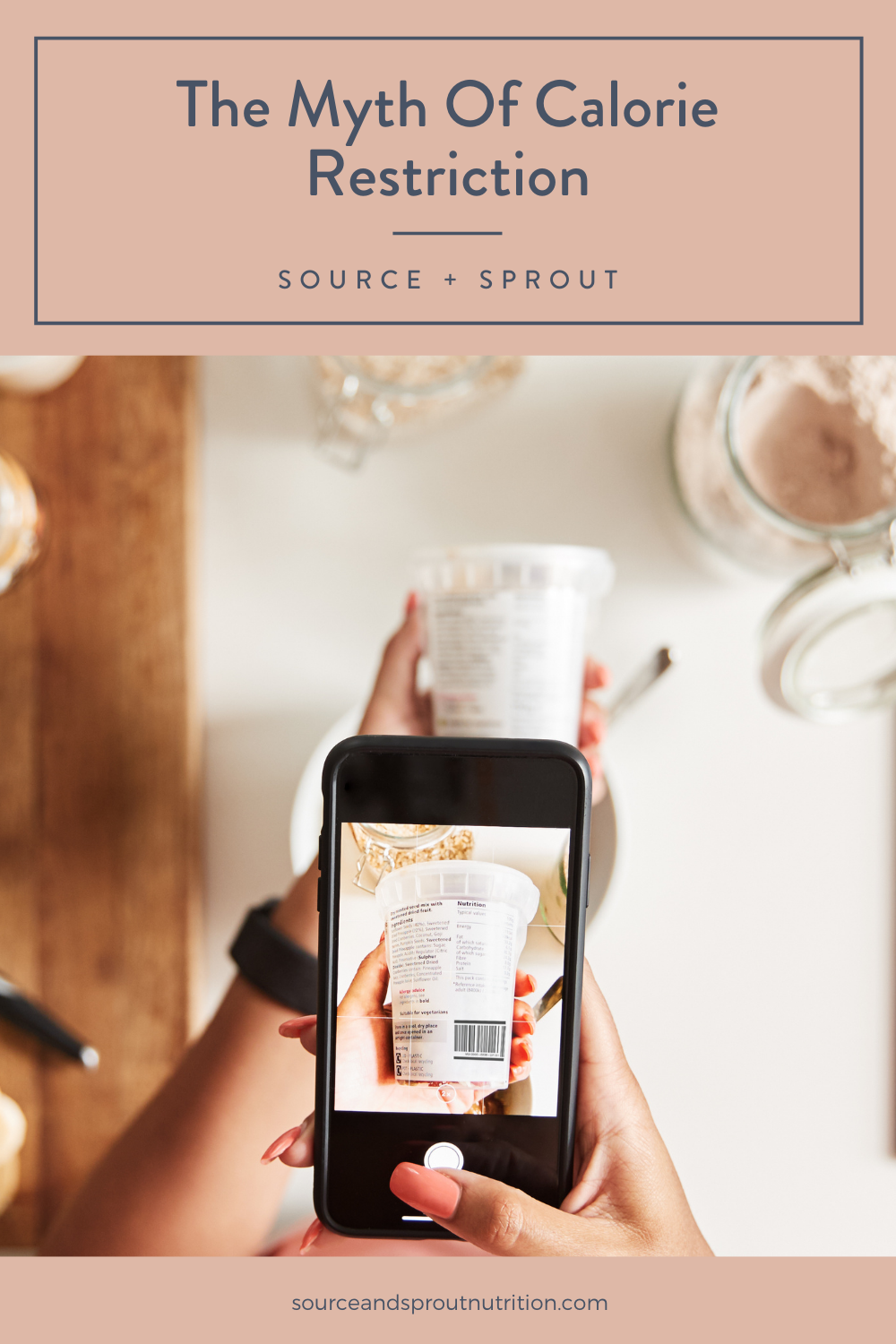The Myth Of Calorie Restriction
Most weight-loss programs or methods recommend some form of calorie restriction. While calories are important for weight, the quality of the calories you're eating is also important. Why?
If your body doesn't get the nutrients it needs, you'll feel like crap.
Aside from nutrient intake, focusing on whole foods that are not ultra-processed is an easy way to make sure you are eating the right amount of calories- not too much, not too little. Most whole foods are naturally high in nutrients, fiber, proteins, and other natural compounds that our bodies need. All that fiber and protein helps fill us up. But if we eat a lot of ultra-processed food, we lose out on fiber and protein, so its easier to accidentally eat more calories than we think we are.
So yes, restricting your caloric intake might help you lose a few pounds, but eating nutrient-poor foods can:
Contribute to metabolic disturbances and disorders
Cause fatigue
Result in nutrient deficiencies
Affect brain fog and moods
Reduce your immunity
Counting calories is also A LOT of work and highly stressful. I always suggest my clients track calories at the beginning and once more during our work together using Cronometer, but it is a huge pain in the neck. Doing this once in awhile can give us a much clearer picture of how many calories we are actually eating. But obsessively counting calories can also lead to a hyper-vigilance about food, and we want to have a positive relationship with all foods!
The Standard American Diet (which is indeed SAD) tends to be high in calories, low in nutrients. So we eat a small amount of food, but it’s loaded with large quantities of fats, sugars, and refined carbohydrates- which all taste FANTASTIC, but don’t give us much in terms of vitamins, minerals, or fiber. These foods are simply less satiating and WAY easier to overconsume than whole foods.
You'll see a greater difference in your energy, mood, and ability to maintain a healthy weight when you focus on eating whole nutrient-packed foods versus just focusing on calories. Eating 2,000 calories of Twinkies is going to make you feel much different than eating 2,000 calories of broccoli, right?
So instead of meticulously counting calories in the name of health, try tweaking your diet in the following three ways:
#1 Focus on ADDING IN not TAKING OUT
Ultraprocessed foods are created to be highly palatable- meaning, our brains are wired to crave the ingredients in these foods- lots of salt, fat, and sugar.
So don't be so hard on yourself—instead of counting calories or removing a ton of different foods, focus on adding in whole foods that are not ultraprocessed. Think fruits, veggies, whole grains, lean proteins, beans and legumes, nuts and seeds. Focusing on adding in many of these foods not only helps us to feel like we are eating way more (which removes the stress of feeling like we need to be restricting all the time), but the foods themselves start to make us feel better since we are getting more nutrients.
Rather than trying to remove everything processed overnight, focus on crowding out these foods by focusing on the whole foods listed above.
Check out my blog post on crowding out for a few ideas to get you started.
#2 Build your meals and snacks around protein and fats
Proteins and fats are important for our body functions- everything from hormones to hair and nail growth. But they are also hugely helpful for weight management by being incredibly filling! Fats and proteins helps us feel full, and helps keep us feeling full longer by stabilizing our blood sugar.
I recommend to my clients that they build their meals and snacks around proteins and/or fats. For example, when trying to think of what to have for dinner, start with the protein. Maybe that’s chicken. Then you decide what else you’d like with that protein-perhaps some sweet potatoes and spinach. Or, when it comes to snacks, you could think “peanut butter” and then decide to have that with an apple, banana, or celery.
#3 Focus on fruits and veggies.
Fruits and vegetables are incredibly nutrient-dense AND low in calories. They come loaded with vitamins, minerals, phytonutrients, and fiber that will keep your body energized and optimized.
If you don't eat many of these foods right now, start by slowly adding in some fruit or veggies at each meal and snack. And if you want the most bang for your buck, leafy greens are chock full of nutrients and antioxidants.
--
While restricting calories is often associated with weight loss, it may not be the best solution. Eating nutrient-rich foods will give your body the energy it needs to keep you healthy and happy. And I don't know about you, but I think that's a much better way to live.
This information is for educational and informational purposes only and solely as a self-help tool for your own use. I am not providing medical, psychological, or nutrition therapy advice. You should not use this information to diagnose or treat any health problems or illnesses without consulting your own medical practitioner. Always seek the advice of your own medical practitioner and/or mental health provider about your specific health situation. For my full Disclaimer, please go to https://www.sourceandsproutnutrition.com/disclaimer

